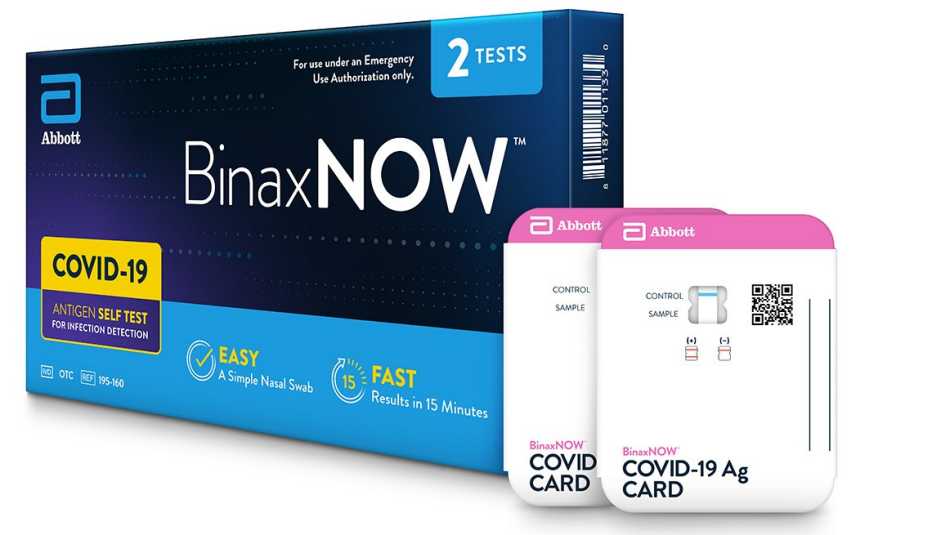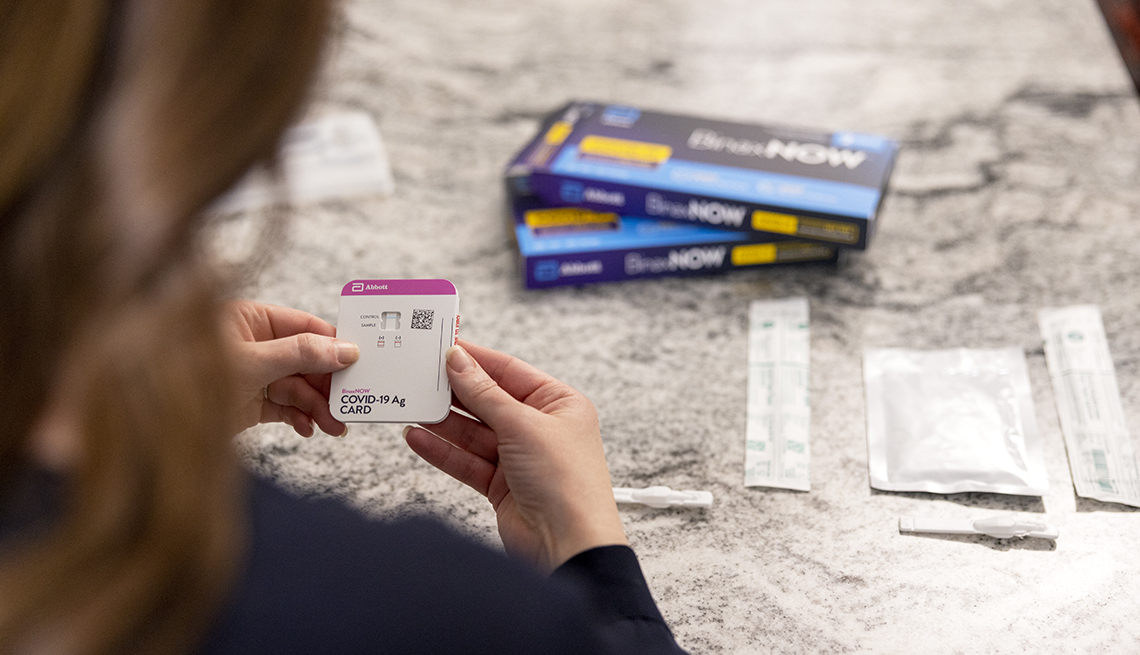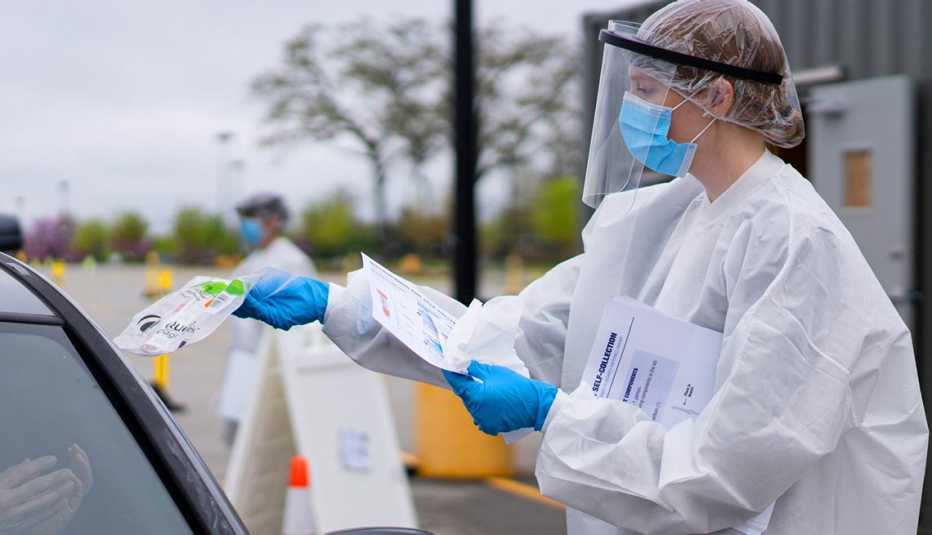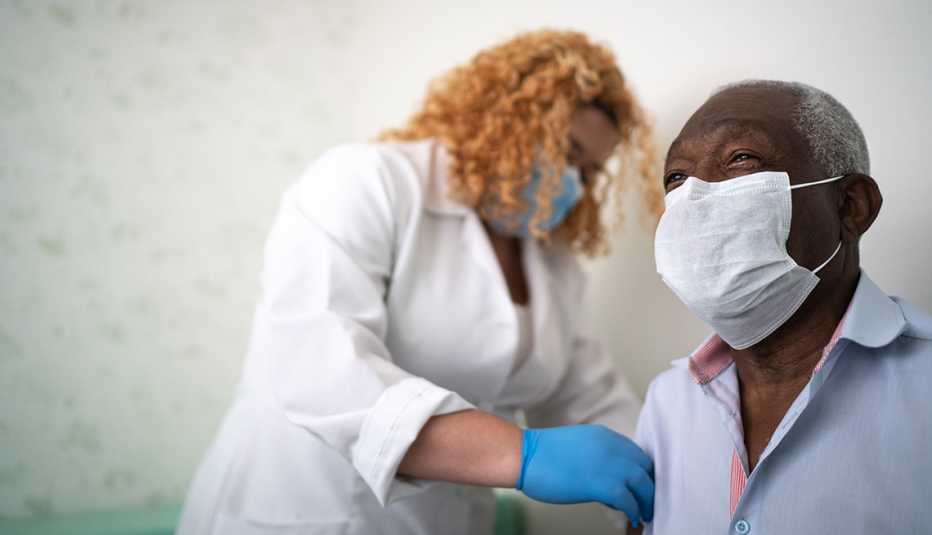AARP Hearing Center
Forget the long lines and the even longer nasal swabs. Now people with or without COVID-19 symptoms can purchase rapid and relatively affordable over-the-counter coronavirus test kits from the store and test themselves at home.
Abbott Laboratories has started shipping its BinaxNow antigen self-test to CVS, Walgreens and Walmart locations across the country, the company announced on April 19. The box of two tests, priced at $23.99, is also being sold by the retailers online. And by the end of May, Ellume plans to have its over-the-counter (OTC) COVID-19 home test kit ($38.99) stocked in most CVS retail locations. Select stores are already selling them.
Both are antigen tests — meaning they look for specific proteins from the virus — and both have received emergency use authorization from the Food and Drug Administration (FDA). A doctor's prescription is not required to purchase the rapid home-test kits.
Testing still needed despite vaccines
Michael Mina, an epidemiologist at Harvard University's T.H. Chan School of Public Health and a vocal proponent of at-home testing, said while the “fervor” for COVID-19 testing has somewhat diminished, accessible and affordable testing options are still key to ending the pandemic — even as more Americans get vaccinated.
"[Vaccination] doesn't mean that we can let go of all control measures. And one of those control measures is to know if you're infectious, especially before you walk into a hospital or nursing home,” Mina said during an April 20 webinar, which was cohosted by the T.H. Chan School of Public Health.
It's also important to keep in mind that vaccinated people can potentially still get a coronavirus infection and may be able to pass the virus on to others, possibly sickening susceptible individuals, according to the Centers for Disease Control and Prevention (CDC).


"And there are a lot of people who haven't been vaccinated in this country for lots of different reasons,” Mina pointed out. To date, 26 percent of the U.S. population is fully vaccinated and 40 percent has received at least one dose of a two-shot series, CDC data shows.




































































